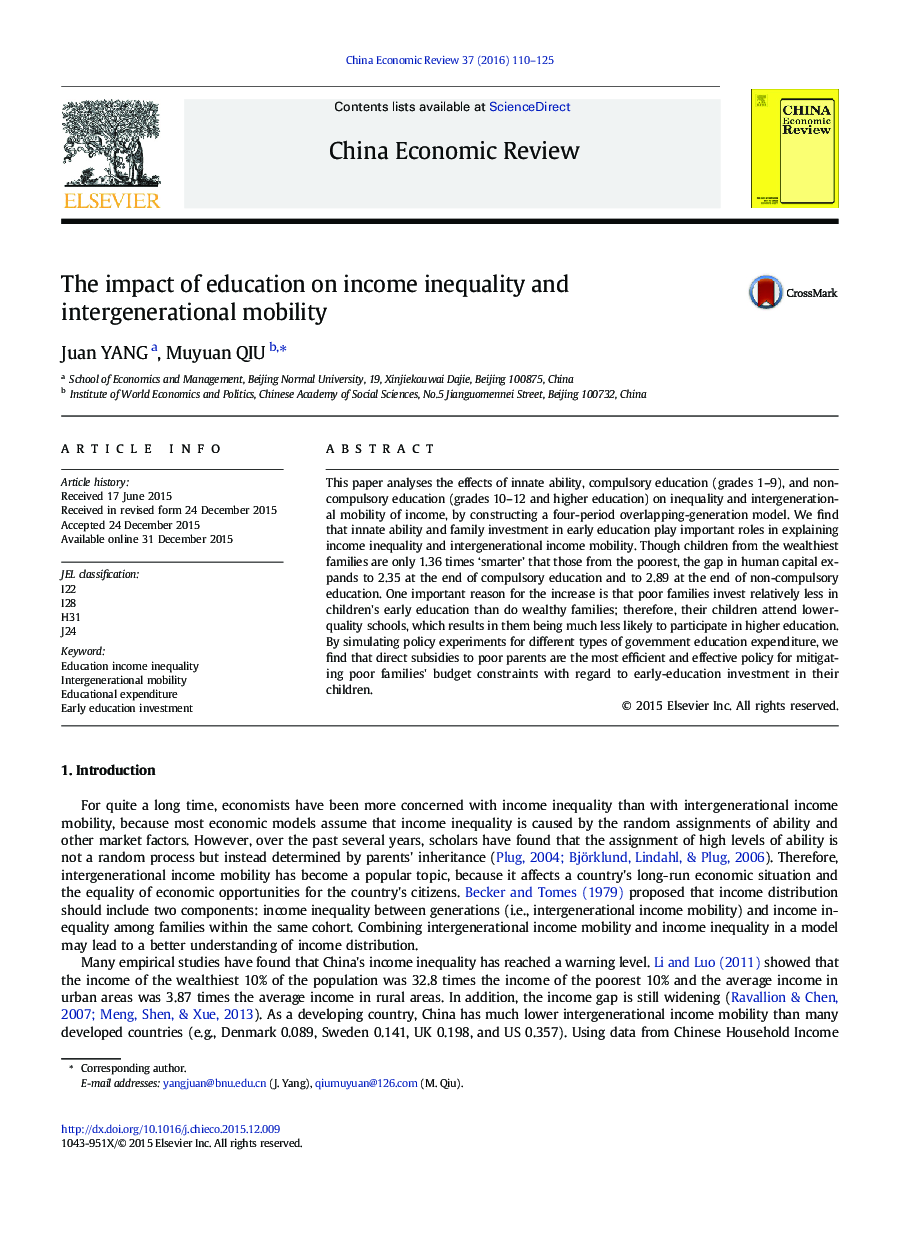| Article ID | Journal | Published Year | Pages | File Type |
|---|---|---|---|---|
| 5047406 | China Economic Review | 2016 | 16 Pages |
â¢Higher education and innate ability play an important role in explaining income inequality.â¢Many poor children cannot enter university due to budget constraints on early education.â¢Income gaps are mainly due to the difference in early education investment.â¢Subsidizing early education is the most effective public policy to release income inequality.
This paper analyses the effects of innate ability, compulsory education (grades 1-9), and non-compulsory education (grades 10-12 and higher education) on inequality and intergenerational mobility of income, by constructing a four-period overlapping-generation model. We find that innate ability and family investment in early education play important roles in explaining income inequality and intergenerational income mobility. Though children from the wealthiest families are only 1.36 times 'smarter' that those from the poorest, the gap in human capital expands to 2.35 at the end of compulsory education and to 2.89 at the end of non-compulsory education. One important reason for the increase is that poor families invest relatively less in children's early education than do wealthy families; therefore, their children attend lower-quality schools, which results in them being much less likely to participate in higher education. By simulating policy experiments for different types of government education expenditure, we find that direct subsidies to poor parents are the most efficient and effective policy for mitigating poor families' budget constraints with regard to early-education investment in their children.
